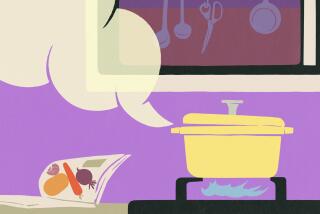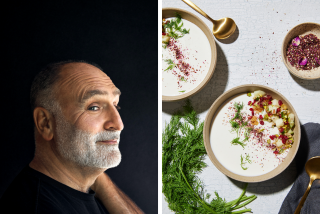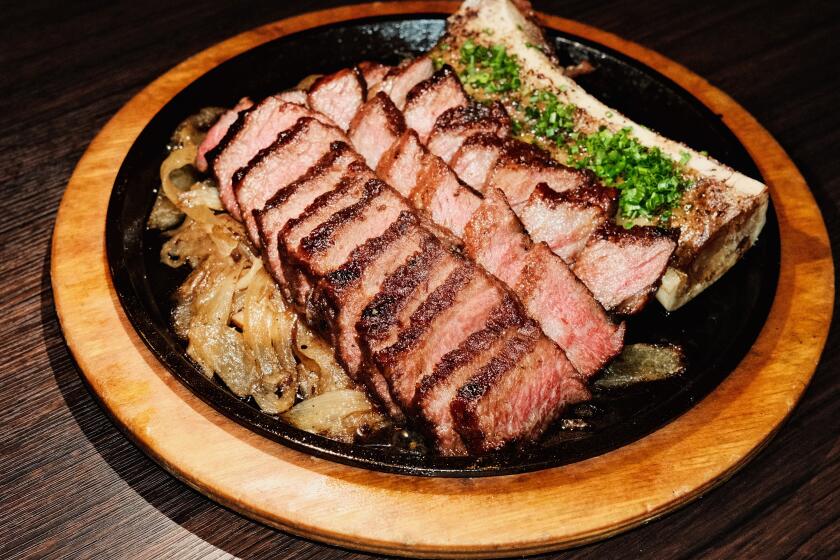Famine and feast in the Soviet Union: ‘Mastering the Art of Soviet Cooking’
Hunger, to paraphrase the old line, makes the best sauce. Judging from Anya von Bremzen’s splendid new “Mastering the Art of Soviet Cooking,” it also makes for a pretty good memoir.
Von Bremzen is a widely published food and travel writer and the author of five previous cookbooks -- all pretty much standard recipe collections. With “Mastering,” she digs much deeper. In fact, though there are a few recipes at the end of the book, they are very much secondary material.
The essence of “Mastering” -- named after Julia Child’s first book with what seems a very Soviet-style mix of cynicism and irony -- is Von Bremzen’s personal history of growing up in the Soviet Union.
While most food memoirs are recollections of meals past, “Mastering” is more about meals missed -- in both senses of the phrase. There are constant shortages and hunger. But there is also the intensity of unexpected, almost miraculous, feasts that the well-fed may never experience (even if in retrospect they don’t measure up as such).
Even if it’s something as prosaic as black bread fried with eggs -- Von Bremzen’s mother’s Sunday treat. “It was, I think, the most delicious and eloquent expression of pauperism,” she writes.
Hunger does have a way of magnifying even small pleasures and though it is clear Von Bremzen would never go back to those lean and treacherous days, throughout the book there is also an underlying sense of yearning for the ecstasy of the fast-breaking. It’s a paradox that seems peculiarly Russian.
The book is loosely structured around a series of period feasts Von Bremzen and her mother prepared for a group of fellow expats in New York. Some were truly spectacular -- her mother labored for days over an authentic Czarist kulebiaka -- a kind of giant pastry stuffed with fish, mushrooms and kasha, each layer separated by little blinchiki pancakes.
Others were prosaic as can be. The ubiquitous salat Olivier -- a salad of potatoes, pickles and assorted boiled vegetables (whatever was available) bound with mayonnaise. Plain as can be, but hotly debated in its many variations.
Food aside, “Mastering” can also be read as a personal history of the Soviet Union, its careful myth-tending, its awful realities, and its eventual dissolution into something, if not worse, certainly different.
I’m not conversant enough with Russian history to be able to judge much of the larger historical context. But what seems inarguable is the many ways large and small it warped and twisted Von Bremzen’s life and the lives of those around her.
She describes the U.S.S.R. with the eyes of a betrayed lover -- alternately despairing, dismayed, aghast and yet, somehow, still in some part of her that probably even she doesn’t understand, with love.
ALSO:
COOKBOOKS: Daniel Boulud’s French manifesto
COOKBOOKS: “Coi” and the art of anti-food porn
COOKBOOKS: Inside the early days of California cuisine
More to Read
Eat your way across L.A.
Get our weekly Tasting Notes newsletter for reviews, news and more.
You may occasionally receive promotional content from the Los Angeles Times.







